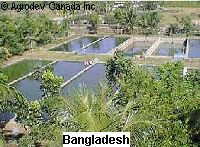EU project tackles renewable energy and sustainable wastewater in Bangladesh
An EU funded project that brings together European and Bangladeshi partners with the aim of recycling wastewater and setting up the infrastructure to produce biomass energy in Bangladesh has recently got underway. The Integrated Approach for Sustainable Wastewater Management and Biomass Production in Bangladesh (INAWAB) project is funded under the EU's EuropeAid programme, which is the funding instrument for the European Commission's external assistance activities. 'There is in Bangladesh, as in other developing countries, an enormous potential for local renewable energy agencies - particular forest species that grow very quickly, and could be the future material for local energy producers if they are cultivated in plantations,' said Mirko Hänel, director of international projects at the Bremerhaven technology transfer centre (ttz Bremerhaven). The plantations will be irrigated with waste water, giving the trees an additional function of a bio-filter for water purification. 'In this way, waste water will be purified, the necessary raw material produced, and a clean, natural energy created,' said Mr Hänel. Joining the ttz Bremerhaven in this project are the Dutch University of Utrecht, Austria's Inter-University Research Institute, and the International Development Enterprise and Bureau of Research, Testing and Consultation in Agricultural Engineering from Bangladesh. The consortium is to receive 337,000 euro from the European Commission, and is set to complete the project in two years.
Countries
Austria, Bangladesh, Germany, Netherlands



